Remember that values questions have a “you” in them. The goal is to involve people in relating what they see on the screen to their own lives, not to analyze the filmmaker’s technique or to engage in intellectual criticism. Allow the conversation to flow along a values and feelings track.
Bio/Short Description
A philosopher, social theorist, and political activist, Marcuse gained world renown during the 1960s as the “father of the New Left.” Author of many books and articles and a university professor, Marcuse gained notoriety when he was perceived as both an influence on and defender of the New Left in the United States and Europe. His theory of one-dimensional society provided critical perspectives on contemporary capitalist and state communist societies, and his notion of “the great refusal” won him renown as a theorist of revolutionary change and “liberation from the affluent society” (Kellner 1984, 322). Consequently, he became one of the most influential intellectuals in the United States during the 1960s and into the 1970s.
Many people have heard about the Frankfurt School, which was an influential research group in the 1930s in Germany. In 1933, Marcuse joined the Institut für Sozialforschung (Institute for Social Research) in Frankfurt and soon became deeply involved in its interdisciplinary projects, which included working out a model for radical social theory, developing a theory of the new stage of state and monopoly capitalism, providing a systematic analysis and critique of German fascism, and developing a theory of the new roles of mass culture and communication in modern societies.
Marcuse deeply identified with the critical theory of the Institute and throughout his life was close to Max Horkheimer, Theodor Adorno, and others in the Institute’s inner circle. This group explored the functions of culture, ideology, and mass media in contemporary societies -- and the ideas that developed here constitute one of its most valuable legacies.
The critical theorists excelled as critics of both so-called “high culture” and “mass culture” while producing many important texts in these areas. Their work is distinguished by the close connection between social theory and cultural and media critique and by their ability to contextualize culture within social environments and struggles. In particular, their theory of culture was bound up with analysis of the dialectic of enlightenment (Horkheimer and Adorno 1972).
Culture—once a refuge of beauty and truth—was falling prey, they believed, to tendencies toward rationalization, standardization, and conformity, which they saw as a consequence of the triumph of the instrumental rationality that was coming to pervade and structure ever more aspects of life. Thus, while culture once cultivated individuality, it was now promoting conformity and was a crucial part of “the totally administered society” that was producing “the end of the individual” (Horkheimer and Adorno 1972, 17, 38).
Marcuse and the critical theorists thus came to see what they called the Culture Industry as a central part of a new configuration of capitalist modernity, which used culture, advertising, mass communication, and new forms of social control to induce consent to and reproduce the new forms of capitalist society. The production and transmission of media spectacles that transmit ideology and consumerism through allegedly popular entertainment and information were, they believed, central mechanisms through which contemporary society came to dominate the individual.
HOW THEY INFLUENCED YOU?
External Links
Other Grandparents
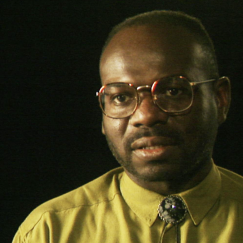 Marlon Posted By: Renee HobbsOn:11/29/2023 - 00:56
Marlon Posted By: Renee HobbsOn:11/29/2023 - 00:56
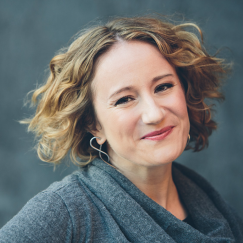 danahPosted By: Yonty FriesemOn:01/06/2023 - 07:34
danahPosted By: Yonty FriesemOn:01/06/2023 - 07:34
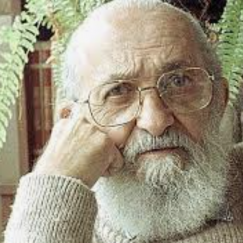 PaoloPosted By: Renee HobbsOn:07/22/2021 - 16:11
PaoloPosted By: Renee HobbsOn:07/22/2021 - 16:11
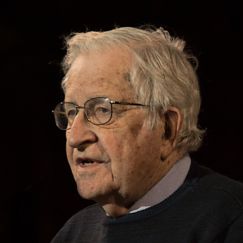 NoamPosted By: Renee HobbsOn:05/23/2020 - 03:48
NoamPosted By: Renee HobbsOn:05/23/2020 - 03:48
 Jon Posted By: Renee HobbsOn:05/10/2020 - 00:12
Jon Posted By: Renee HobbsOn:05/10/2020 - 00:12

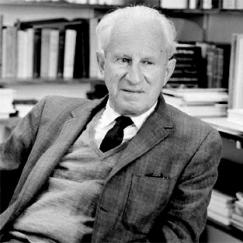

Doug Kellner
In the mid-1970s, I became involved in Marxist studies groups at the University of Texas at Austin. After going through key Marxian texts, including the Grundrisse and Capital, we decided to study the American political economy and, in particular, television. Our study group began with sustained study and discussion of Horkheimer and Adorno’s model of the culture industry in Dialectic of Enlightenment and Marcuse’s critique of the media within one-dimensional society.
We also became involved in alternative media and were given a chance to do a weekly public-access TV show, Alternative Views. Accordingly, from 1978 to the mid-1990s, Frank Morrow, myself, and others taped hourlong interviews combined with documentary programs to produce one show per week for years on end; they were eventually syndicated around the United States and briefly made me a celebrity in New York City, where the program was shown several times per week on the New York public-access channels. This project helped me to become a Deweyan public intellectual and to apply philosophical notions and abilities to issues of public concern in a public forum.
At the time, I was also deeply involved in study of the media and ideology, and in the 1970s I published in the Socialist Review one article on the concept of ideology (Kellner 1979a) and another on television ideology and emancipatory popular culture (1979b). Although I was associated with Herbert Marcuse’s wing of Frankfurt School critical theory after publishing my book Herbert Marcuse and the Crisis of Marxism (1984), I also liked Habermas’s work on communicative action, theory, and practice and other works and did not posit siding with Marcuse or Habermas as an either-or choice. But Habermas’s student Albrecht Wellmer, who came to New York to lecture on Habermas, felt differently. In a proselytizing mode, he presented Habermas’s work as far superior to Marcuse’s and Horkheimer and Adorno’s. This was the beginning of the development of a Habermasian camp, which would become a global intellectual subdiscipline that continues to this day.
Following Marcuse, I argued that media could be used as instruments of power, domination, and social control and yet could also be used as forms of resistance to hegemonic power and for alternative forms of pedagogy, politics, and communication. I also recognized that media were so powerful, so proliferating and omnipresent, that it was impossible to really grasp their complex, singular, and often weird effects (so I also was open to poststructuralist theories of the media).